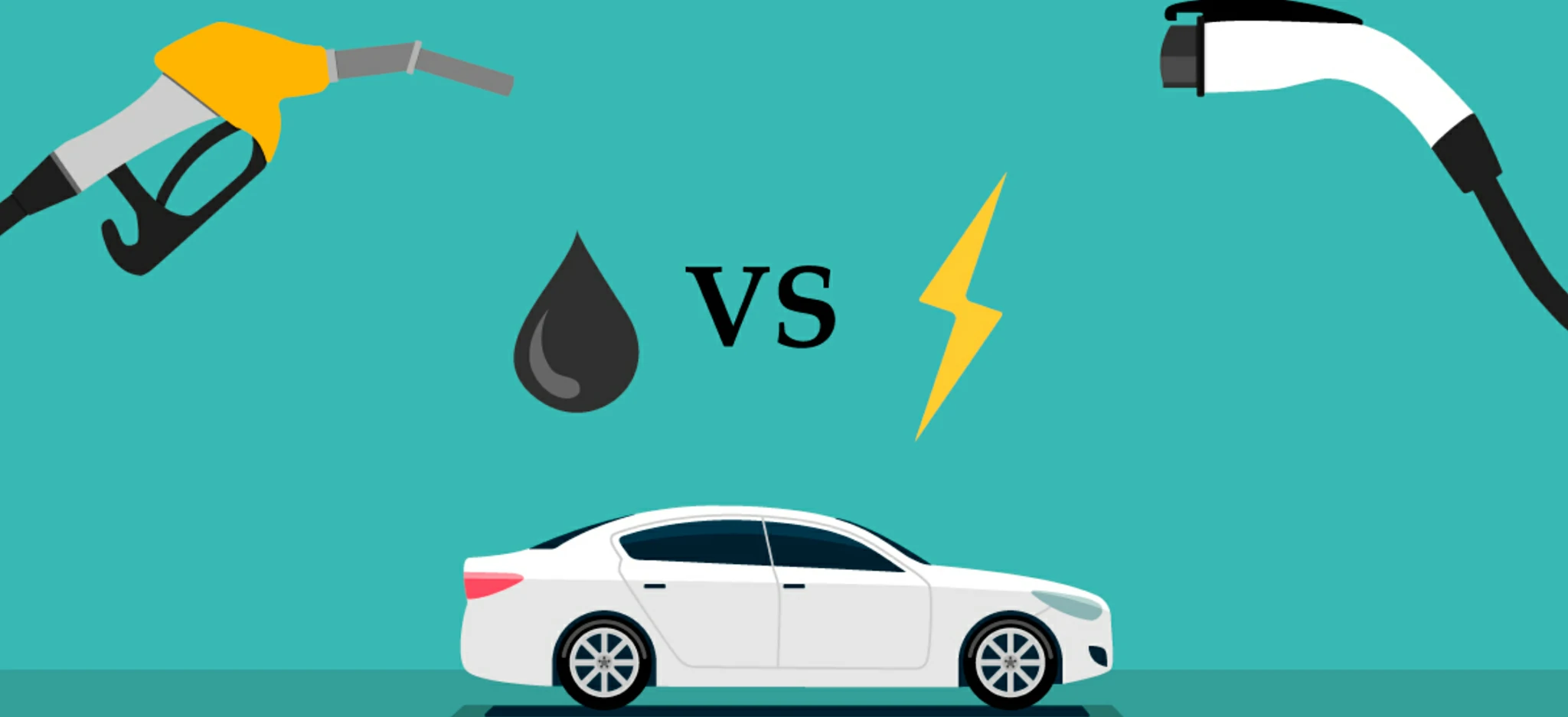📖 Table of Content:
As the automotive industry evolves, EV vs gas car comparison, the debate between electric vehicles (EVs) and gas-powered cars continues to gain traction. With increasing environmental awareness and advancements in technology, consumers are more informed than ever. This article explores the key differences between EVs and gas cars, focusing on environmental impact, cost, performance, and technology.
What are Electric Vehicles?
Electric vehicles, commonly referred to as EVs, run entirely on electric power. They can be categorized into several types:
- Battery Electric Vehicles (BEVs): These rely solely on electric power stored in batteries and produce zero tailpipe emissions.
- Plug-in Hybrid Electric Vehicles (PHEVs): These combine an internal combustion engine with an electric motor, offering flexibility in power sources.
- Hybrid Electric Vehicles (HEVs): These have both gas and electric components but cannot be plugged in to charge.
EVs operate using a battery system and can be charged at home or public charging stations, with fast-charging options becoming increasingly available.
Table of Contents
What are Gas Cars?
Gas-powered vehicles use internal combustion engines (ICE) that burn fossil fuels, typically gasoline, to generate power. These vehicles have been the traditional choice for decades, known for their ease of refueling and long driving ranges. However, they contribute to greenhouse gas emissions and are less energy-efficient compared to electric vehicles.
Environmental Impact
The environmental footprint of EVs is a significant factor in their growing popularity. Studies show that EVs generally have a lower carbon footprint over their entire lifecycle compared to gas cars.
- Lifecycle Emissions: EVs produce fewer emissions from manufacturing to disposal, particularly when charged with renewable energy sources.
- Regional Differences: The environmental impact of EVs can vary based on local electricity sources. Regions reliant on coal may have higher emissions compared to those using wind or solar power.
Cost Comparison
Initial Purchase Price
While the upfront cost of EVs has historically been higher than that of gas cars, this gap is narrowing due to increased competition and advancements in battery technology. Many governments also offer incentives that can make EVs more affordable.
Running Costs
EVs tend to have lower operating costs:
- Fuel Costs: Charging an EV is generally cheaper than fueling a gas car, especially with the rising costs of gasoline.
- Maintenance: EVs have fewer moving parts, resulting in lower maintenance costs over time. They do not require oil changes and often experience less wear and tear.
Long-term Financial Benefits
While the initial investment may be higher for EVs, the overall savings in fuel and maintenance can make them a more economical choice in the long run.
Performance and Driving Experience
Electric vehicles offer a unique driving experience that many consumers find appealing:
- Acceleration and Torque: EVs provide instant torque, allowing for quick acceleration compared to traditional gas cars.
- Range Anxiety: A common concern among potential EV buyers is the driving range. However, advancements in battery technology are increasing the range of many EVs, making them comparable to gas cars for everyday use.
Technological Advancements
The automotive industry is witnessing rapid advancements in technology for both EVs and gas cars:
- Electric Vehicles: Innovations such as fast-charging stations, improved battery life, and autonomous driving features are becoming more prevalent in EVs.
- Gas Cars: Manufacturers are focusing on improving fuel efficiency and reducing emissions through advanced engine technologies.
Consumer Preferences and Market Trends
Consumer preferences are shifting towards electric vehicles as awareness of environmental issues grows.
- Market Dynamics: The demand for EVs is rising, with many countries setting ambitious targets for transitioning to electric fleets in the coming decades.
- Future Predictions: Analysts anticipate that EVs will continue to capture a larger market share as technology improves and charging infrastructure expands.
Conclusion
The choice between electric vehicles and gas cars ultimately depends on individual needs and preferences. While both options have their merits, the shift towards electric vehicles is becoming increasingly evident due to their environmental benefits, lower running costs, and innovative technology. As the automotive landscape continues to evolve, consumers have more resources and information than ever to make informed decisions.
FAQs
1. What is the lifespan of an electric vehicle battery?
Most EV batteries are designed to last between 8 to 15 years, depending on usage and maintenance.
2. How do EVs perform in cold weather?
EVs can experience reduced range in colder temperatures, but many modern models have features that mitigate this issue.
3. Are EVs really better for the environment?
Yes, when considering lifecycle emissions, EVs generally have a lower carbon footprint, especially when charged with renewable energy.
4. What are the best EVs on the market today?
There are many great options available, including models from Tesla, Ford, and Hyundai, each offering unique features and price points.
For more updates on automotive news and developments, visit Motosniff Homepage.




